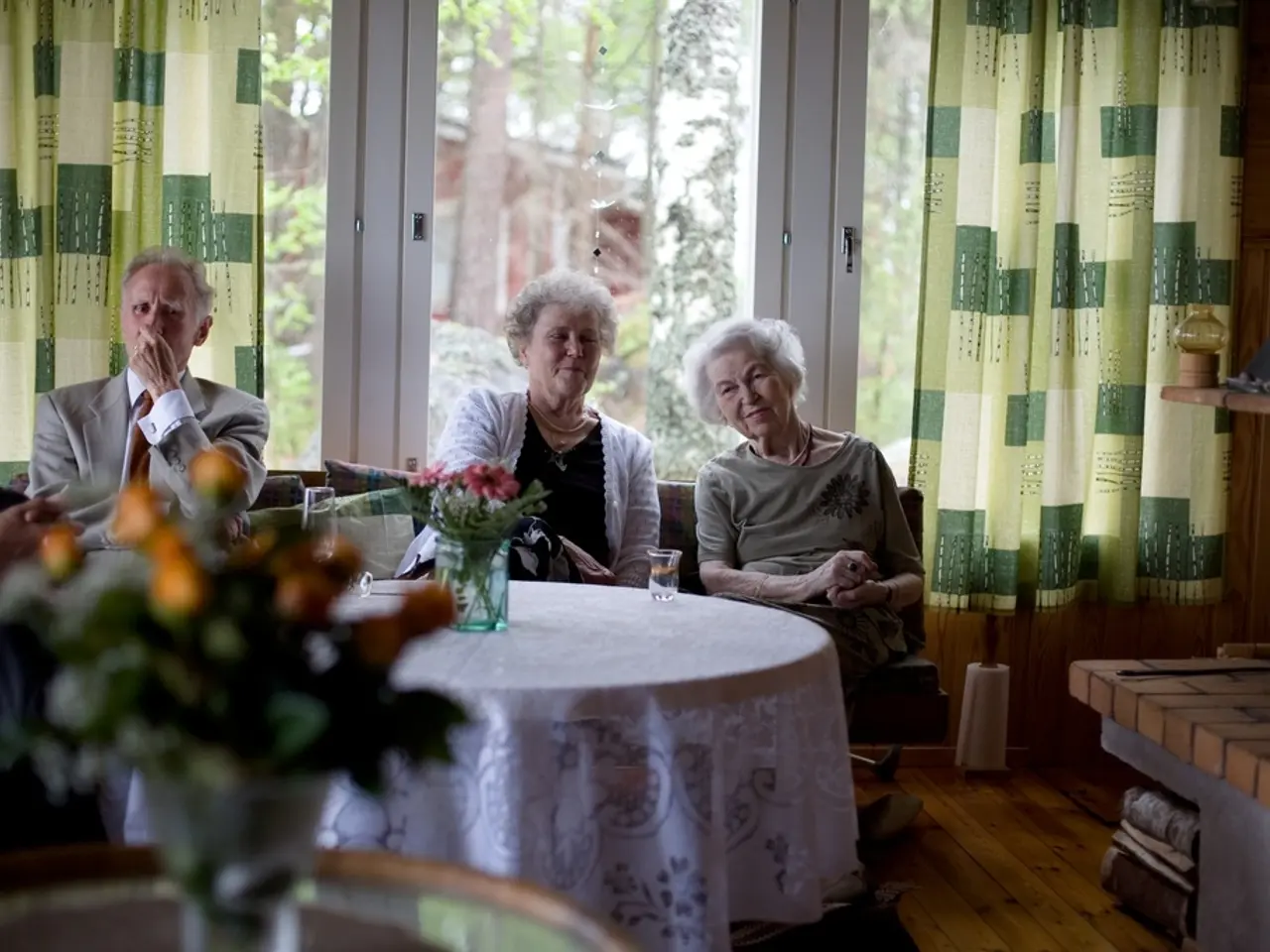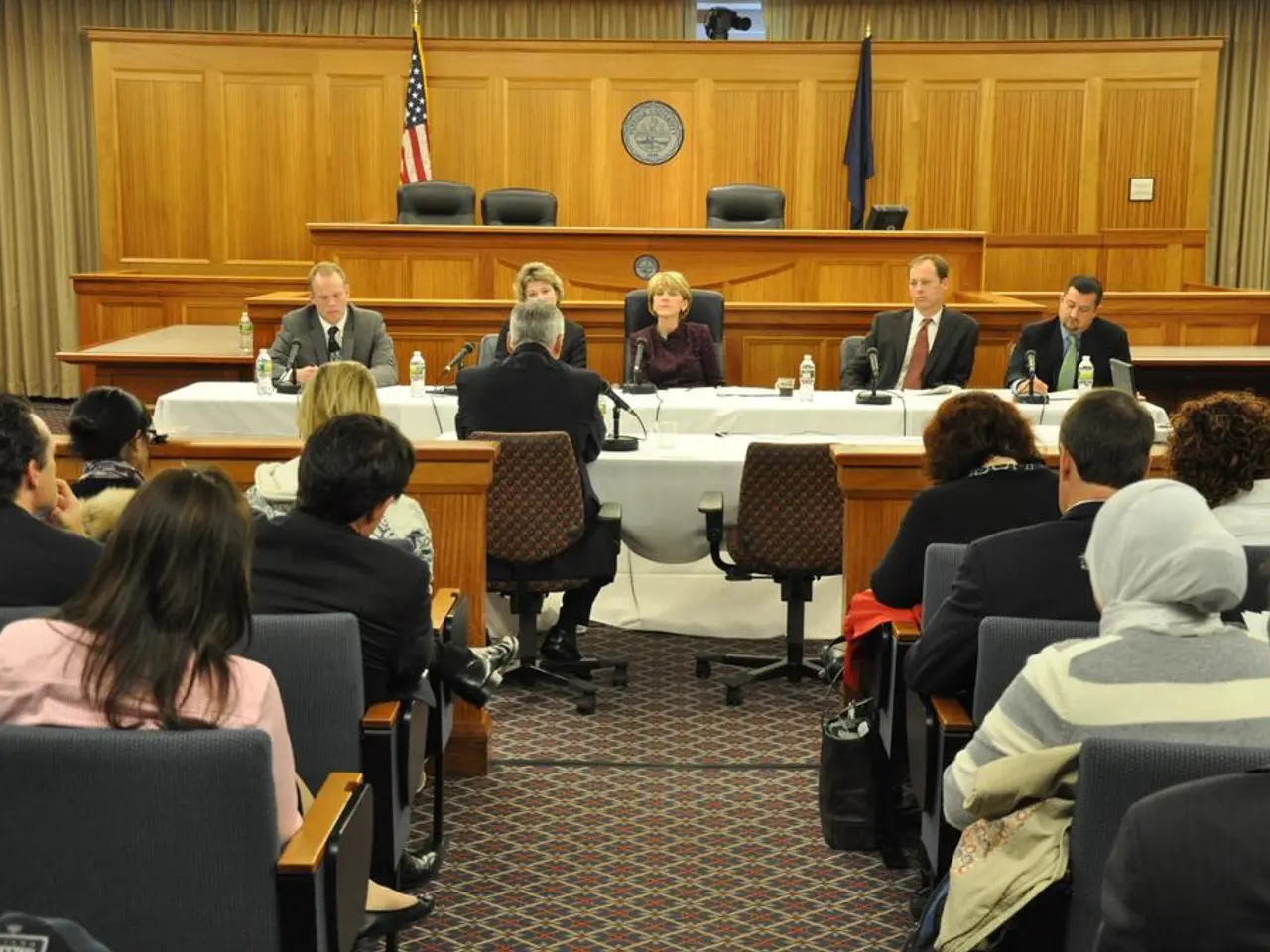Ecuadorian President approves paperwork advocating for the protection of adolescents.
In a significant move, President Daniel Noboa Azín of the Republic of Ecuador recently signed a commitment to the protection of children on 10th March 2025. The commitment, however, has been met with controversy, as the Ecuadorian government's stance on gender ideology in education and minors' rights to self-identity remains unclear.
The commitment was made following a meeting between President Noboa and representatives from the evangelical Christians church, Catholic Church, and Orthodox Church. The signing came after a complaint filed by the family of a Spanish trans girl who experienced discrimination at a school in Salinas, sparking a broader debate about children's rights and education in Ecuador.
Alegría Crespo, Minister of Education, has publicly stated that she would not implement any action based on gender ideologies. However, the commitment document promises that the Ecuadorian government will not include gender ideology perspectives in educational texts and institutions. It is worth noting that the document does not provide details about specific measures to be taken for the protection of children.
The controversy surrounding the Ecuadorian government's actions regarding children's issues deepened when the political party Firmes publicly accused Harold Burbano, Minister of Economic and Social Inclusion, of being a "promoter of transgender infancy." Burbano has since stated that there are no national, international, logical, or ethical legal bases that call for the hormonisation of children and adolescents. He emphasised his position as being in favour of human dignity and the defence of the most vulnerable.
The Constitutional Court has issued a ruling for the Ministry of Education to develop protocols for the accompaniment of LGBTIQ+ minors in schools to prevent discrimination. Despite this, the government has also stated that it would not allow sex changes for minors.
It is important to note that while Ecuador has made strides in recognizing and protecting the rights of transgender individuals, with anti-discrimination laws in place, the specific stance on gender ideology in education is not clearly outlined in the available information.
The global trend of resistance against gender equality and LGBTQ+ rights, including opposition to comprehensive sex education and discussions of gender identity in schools, is a significant context to consider. This resistance is often framed as opposition to "gender ideology," which is viewed with skepticism by some conservative groups.
Research in Ecuador has focused on sexual and reproductive health and rights, emphasising the need for education that empowers young people to understand and respect sexual consent and boundaries. However, specific government policies on gender ideology in schools are not mentioned in the search results.
As the debate continues, it is crucial to stay informed about the evolving situation in Ecuador regarding children's rights and education. The commitment signed by President Noboa marks a step towards addressing these issues, but the specific measures to be taken and the government's stance on gender ideology remain to be seen.
The commitment signed by President Noboa, despite providing a step towards addressing children's rights and education, does not offer clear details about the government's stance on gender ideology in education. The recent signing is surrounded by controversy, as it follows a broader debate about children's rights and education in Ecuador that is influenced by the global trend of resistance against gender equality and LGBTQ+ rights, often framed as opposition to "gender ideology."







